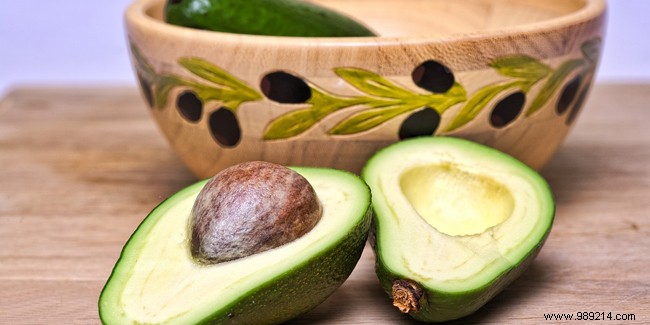
All doctors agree that the first treatment to undertake when you have cholesterol is dietary. Adopting a good diet has indeed visible consequences on the level of cholesterol which is a fatty substance essential to our body, and more precisely present in our blood, of which a part (about a third) is provided by the food we eat. . Eating certain foods that contain little saturated fat or fiber helps to lower or control this cholesterol level, and prevent this health problem which can have serious consequences such as cardiovascular disease.
Eating oily fish at least 2 to 3 times a week contributes in particular to the reduction of bad cholesterol, called "Low density lipoproteins (LDL)". The latter transports the cholesterol produced by the liver to the cells of the body which need this substance but, when it is disturbed, this function is at the origin of the formation of plaques which can clog the arteries and cause cardiovascular diseases. The good cholesterol, the "High density lipoproteins (HDL)", allows him to eliminate excess cholesterol by bringing it to the liver where it is eliminated.
Fish rich in good acids (omega 3) are those to favor when you have cholesterol. Thus, sardines, mackerel, herring, tuna, or even salmon can be eaten at least 3 times a week. Without forgetting white and lean fish which have no negative effect on cholesterol.
In order to avoid raising your blood cholesterol level too much, it is possible to eat meat, but not just any meat. It is recommended to rather choose white meats such as chicken or turkey breasts for example.
Veal can also be eaten, like red meat (the leanest cuts), but no more than 3 to 4 times a week. Too rich in fat, charcuterie and pork in general (except white ham without rind) should be avoided.
To fight against cholesterol, it is recommended to proscribe fats of animal origin and to adopt those based on plant sterols, substances that act effectively against cholesterol.
Olive, rapeseed, or even walnut oil are to be preferred over palm or peanut oils, for example, which are too rich in saturated fatty acids which promote cholesterol deposits in the arteries and therefore the increase risk of cardiovascular disease.
Almonds, nuts, and seeds in general are rich in so-called "unsaturated" fatty acids, amino acids (good for blood vessels), and fiber that help prevent the formation of blood clots and eliminate cholesterol.
Chewing for example 10 almonds a day is a good habit to adopt to fight against cholesterol.
Among all the fruits, the apple is the one that can be consumed without fear, quite the contrary, when you want to control your cholesterol level. A study even shows that eating 2 apples a day would lower cholesterol.
The apple is indeed composed in particular of pectins, molecules which contribute to fight against cholesterol, and in particular bad cholesterol.
Still in the category of fruits, the tomato is also beneficial if you want to fight against cholesterol. The lycopene it contains, a red pigment from the carotene family, has antioxidant properties, that is to say benefits that prevent the oxidation of fats which can be harmful to blood vessels.
The tomato thus helps to fight against bad cholesterol in particular.
If almost all vegetables are good and do not provide additional cholesterol, especially because they are rich in fiber, the consumption of artichokes is particularly recommended.
This vegetable contains in particular luteolin, a pigment which has already demonstrated its positive effects in terms of lowering cholesterol levels.
Avocado is also part of a good diet if you want to control your cholesterol level. Despite its greasy appearance which could make you think otherwise, the avocado is in fact composed of unsaturated fatty acids which are allies in the fight against cholesterol and therefore cardiovascular disease.
The health benefits of garlic are well established. This plant used very often in the diet also has benefits on cholesterol which it tends to reduce, and particularly bad cholesterol.
This is why, do not hesitate to use garlic regularly in your diet.
In general, all cereals are good to eat to fight cholesterol. But oats, which are particularly rich in fiber, are undoubtedly the one to be preferred.
Oat bran, more specifically, contains beta-glucan, a very interesting fiber when it comes to lowering cholesterol. This cereal can be consumed for example in the form of porridge at breakfast with milk, preferably of vegetable origin, mixed with soups, or even by eating cereal bread.